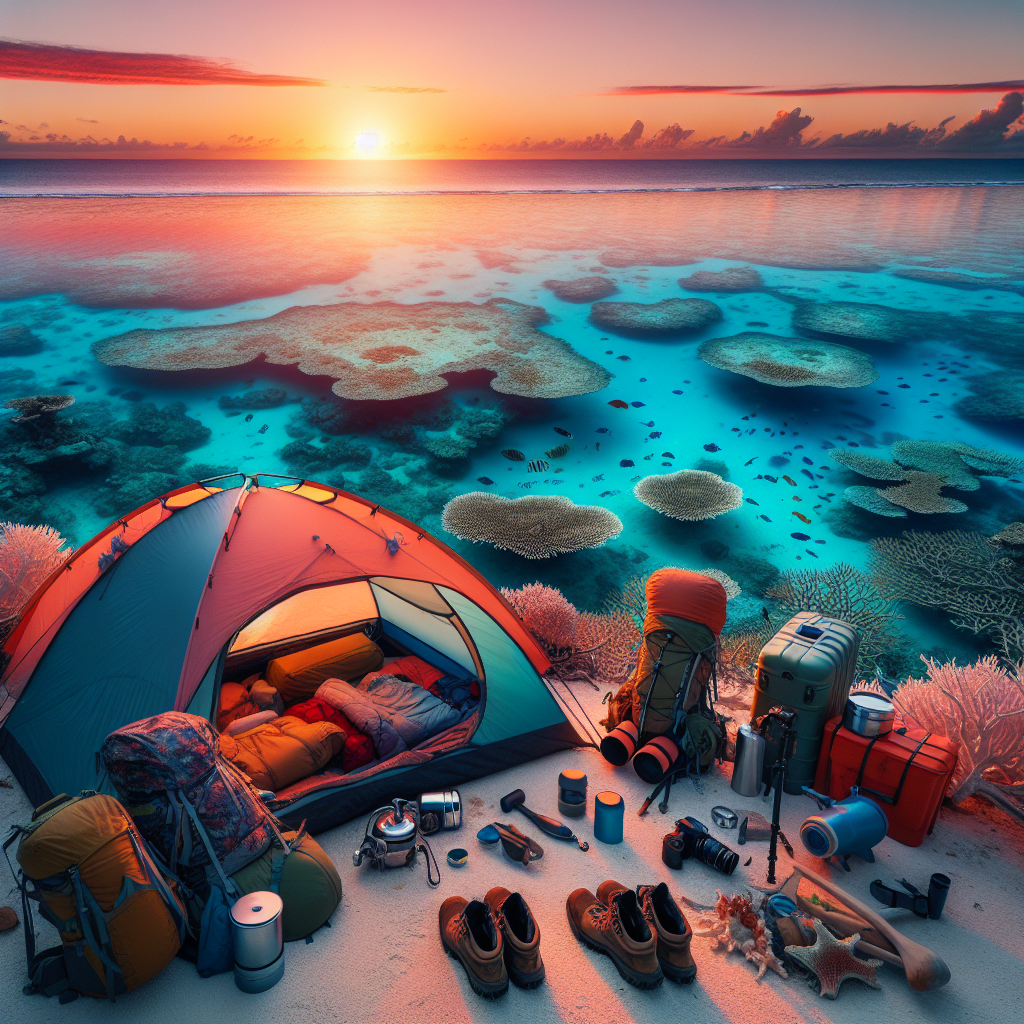

Planning a camping trip to the Great Barrier Reef may seem like a daunting task at first, but fear not! In this article, we will guide you through the process step-by-step, ensuring that your experience is not only enjoyable but also well-organized. From choosing the perfect campsite to packing essential gear, we have got you covered. So, grab your notebooks and let’s dive into the exciting world of camping in one of Australia’s most breathtaking natural wonders. Get ready to embark on an unforgettable adventure!
Choosing the Right Time to Visit
When planning a camping trip to the Great Barrier Reef, it is crucial to consider the weather conditions. The reef is located in a tropical region, so it experiences two distinct seasons: the wet season and the dry season. The wet season, which runs from November to March, is characterized by higher temperatures, humidity, and rainfall. This period may not be ideal for camping due to the increased risk of cyclones and limited visibility for water activities. On the other hand, the dry season, from April to October, offers pleasant weather with cooler temperatures, lower humidity, and less rainfall, making it an excellent time for camping and exploring the reefs.
Researching the peak and off-peak seasons also helps in determining the best time to visit. The peak season, which coincides with school holidays and the dry season, usually falls between June and August. During this time, the Great Barrier Reef attracts a significant number of tourists, resulting in higher prices and crowded camping areas. If you prefer a quieter camping experience, you may want to consider visiting during the off-peak season, which includes the months of April, May, September, and October. During these months, you are more likely to find discounted accommodation rates and fewer tourists, allowing you to enjoy a more serene camping trip.
Checking for special events or festivals happening during your desired travel dates can also enhance your camping experience at the Great Barrier Reef. The region hosts various events throughout the year, such as cultural festivals, marine conservation initiatives, and sporting competitions. By aligning your camping trip with one of these events, you can participate in unique activities, engage with the local community, and gain a deeper understanding of the reef’s cultural and environmental significance.
Deciding on the Duration of Your Trip
When deciding on the duration of your camping trip to the Great Barrier Reef, it is essential to assess your schedule and availability. Consider how much time you can allocate for your trip and determine if it aligns with the activities you wish to do and the distance you need to travel.
Next, think about the activities you want to include during your camping adventure. Whether it’s snorkeling, scuba diving, hiking, or wildlife viewing, each activity may require a different amount of time. For example, if you plan to explore multiple dive sites or embark on lengthy hikes, you may need to allocate more days for your trip. On the other hand, if you have limited time, prioritize the activities that are most important to you and plan your itinerary accordingly.
Factor in the travel time to and from the Great Barrier Reef when deciding on your trip’s duration. The reef stretches for over 2,300 kilometers along the coast of Queensland, so depending on your starting point, travel times can vary significantly. Whether you choose to fly, drive, or take a combination of transportation methods, make sure to factor in the time it takes to reach your chosen camping location. This will help you allocate the right number of days for your trip and ensure you have enough time to enjoy all the experiences the reef has to offer.
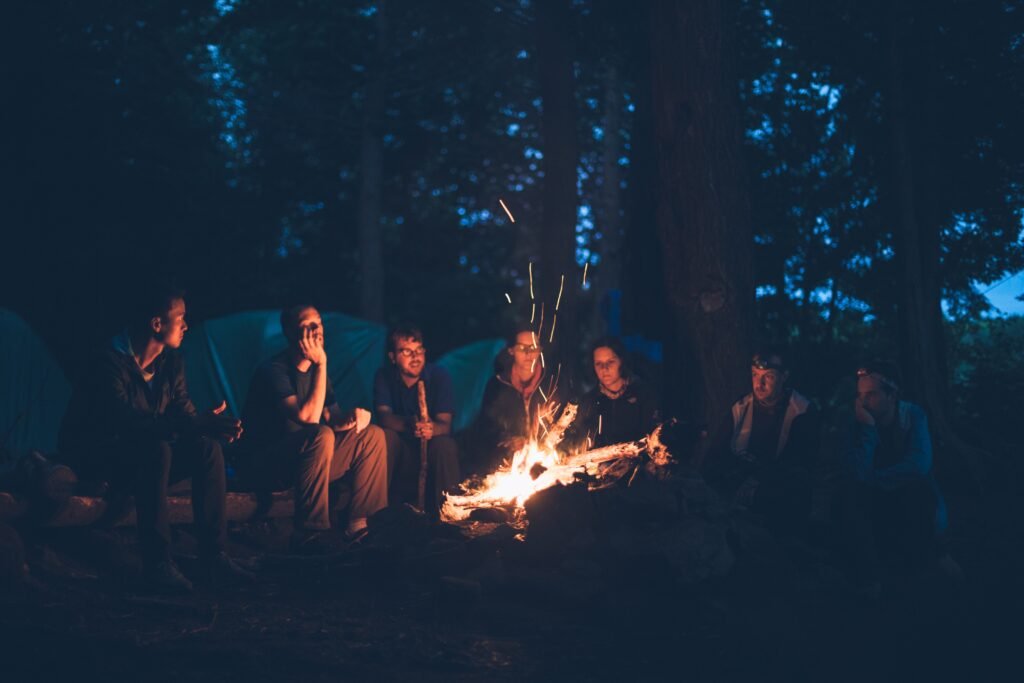

Finding Suitable Accommodation
Researching and finding suitable accommodation options for your camping trip to the Great Barrier Reef is crucial to ensure a comfortable and enjoyable experience.
One popular option is to stay at campgrounds and caravan parks located near the reef. These facilities offer a range of amenities, including powered or unpowered sites, communal cooking areas, and bathroom facilities. Research different campgrounds and caravan parks in the area you wish to explore, and consider factors such as proximity to the beach, access to snorkeling or diving spots, and availability of facilities that meet your needs.
If you prefer a more luxurious camping experience, consider staying at island resorts and lodges located within or near the Great Barrier Reef. These accommodations offer a range of amenities, including private cabins, restaurant facilities, and organized activities. Staying at an island resort or lodge provides easy access to the reef and often includes guided tours or water activities as part of the package. Keep in mind that these options can be more expensive, so it’s advisable to book in advance to secure your preferred accommodation.
Regardless of your chosen accommodation type, it is advisable to book in advance. The Great Barrier Reef is a popular tourist destination, and securing your accommodation early ensures you have the best options available and avoids disappointment during peak seasons.
Understanding Permits and Regulations
When planning a camping trip to the Great Barrier Reef, it is important to understand the permits and regulations in place to protect the fragile ecosystem.
Research and obtain the required permits before embarking on your camping trip. Certain areas within the Great Barrier Reef Marine Park require permits for activities such as camping, fishing, and boating. The permits help manage visitor numbers and ensure sustainable use of the reef. Visit the official website of the Great Barrier Reef Marine Park Authority for detailed information on permits and how to obtain them.
Familiarize yourself with the camping regulations in place within the marine park. These regulations include guidelines on waste disposal, anchoring, and reef conservation. Campers are typically required to use established camping areas and follow specific procedures to protect the environment. By adhering to these regulations, you contribute to the preservation of the reef’s biodiversity.
Respect environmental guidelines when camping in or near the Great Barrier Reef. Take care not to disturb or remove any marine life, including corals and shells. Minimize your impact on the ecosystem by disposing of waste properly and using biodegradable cleaning products. Additionally, practice responsible snorkeling and diving techniques, such as avoiding touching or standing on the coral, and maintaining a safe distance from marine animals. By following these guidelines, you can help preserve the beauty and integrity of the reef for future generations.
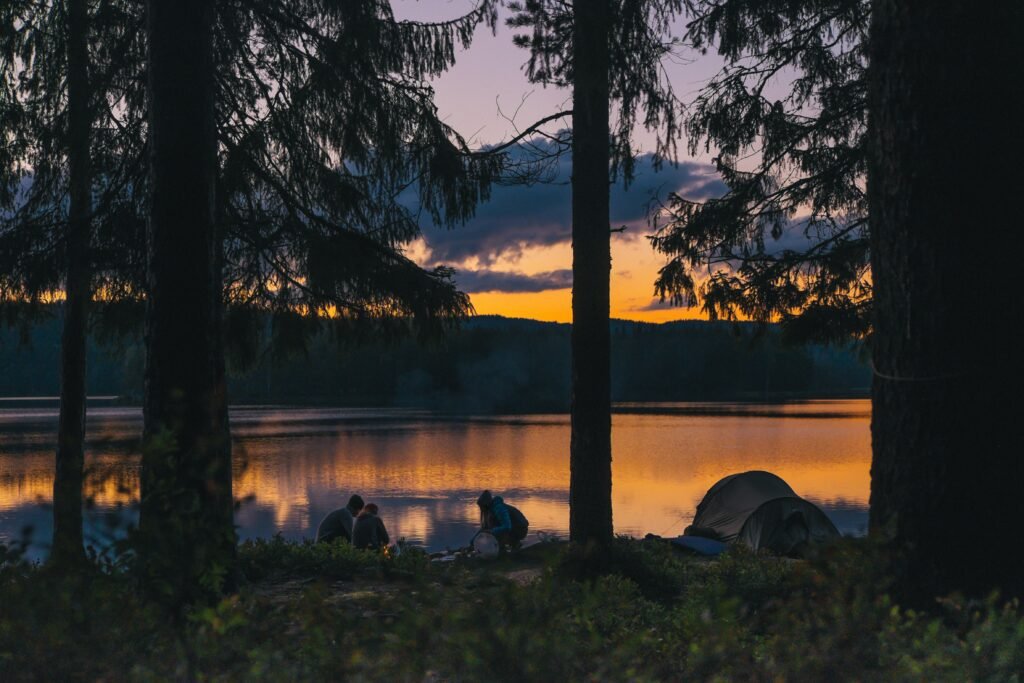

Planning Your Transportation
Choosing the right mode of transportation is essential when planning your camping trip to the Great Barrier Reef. Several options are available depending on your preferences and starting point.
If you are traveling from a far distance and prefer a quick and convenient option, flying is the most suitable choice. Several regional airports are located near the Great Barrier Reef, offering domestic and international connections. Once you arrive, you can then arrange for transfers to your camping destination, whether it be by boat or additional flights.
Alternatively, if you prefer a more flexible and adventurous mode of transportation, consider hiring a campervan or car. This option allows you to explore different areas along the coast and have the freedom to change your itinerary depending on your interests. It is advisable to book your campervan or car rental in advance to ensure availability during your desired travel dates.
If required, arrange for transfers to your camping destination. Some campsites on the islands may require boat transfers from the mainland, while others may be accessible by road. Research the transportation options available for your chosen camping location and make the necessary arrangements to ensure a smooth and hassle-free journey.
Packing the Essential Camping Gear
When preparing for a camping trip to the Great Barrier Reef, it is crucial to pack the essential camping gear to ensure comfort and safety during your stay.
Start with the basics, such as a tent, sleeping bags, and camp furniture. Choose a tent that is suitable for the camping conditions, considering factors such as size, durability, and ease of assembly. Ensure you have enough sleeping bags to keep you warm during cooler nights, and pack camp furniture such as chairs and tables for added comfort.
Cooking equipment and utensils are essential for preparing meals during your camping trip. Consider portable stoves, barbecues, or cooking utensils that suit your preferred cooking style. It is also helpful to pack a cooler or esky to keep food and drinks fresh.
Don’t forget to bring safety gear and a first aid kit. Depending on the activities you plan to engage in, this could include items such as snorkeling or diving equipment, life jackets, and a well-stocked first aid kit. It is crucial to prioritize your safety and be prepared for any emergencies that may arise.
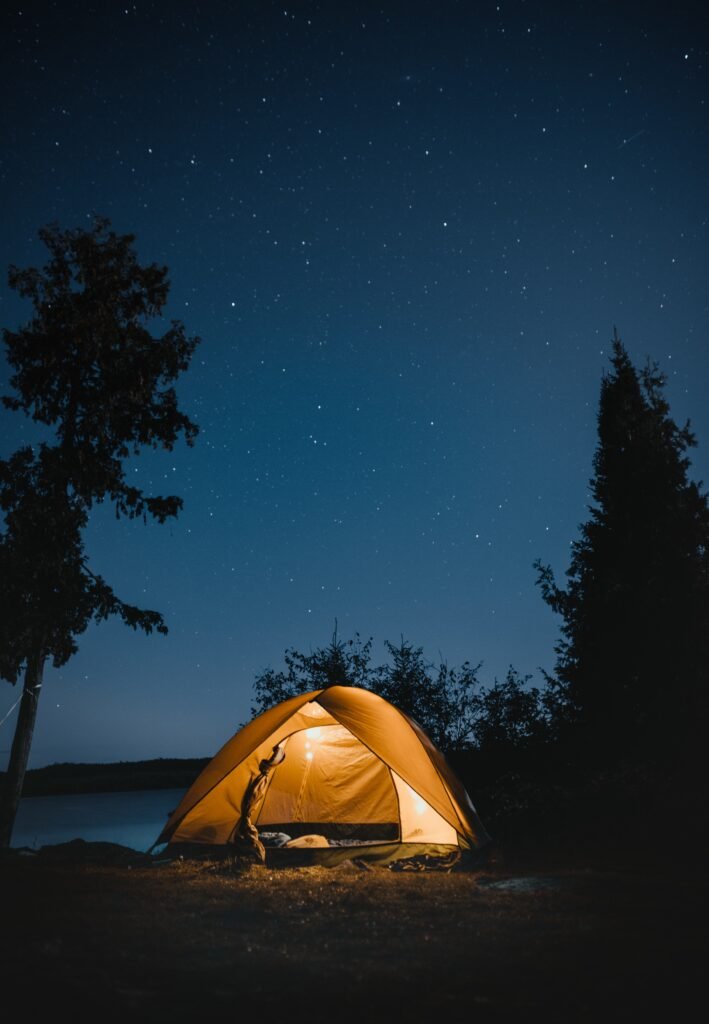

Preparing for Water Activities
The Great Barrier Reef offers a myriad of water activities, so it’s important to be prepared and pack the necessary gear for an enjoyable experience.
If you plan to explore the reef’s underwater wonders through snorkeling or diving, it is essential to bring your own snorkeling and diving gear. This includes masks, snorkels, fins, and dive computers. Having your own gear ensures a proper fit and hygiene, allowing you to fully immerse yourself in the vibrant marine life.
Consider packing wetsuits or stinger suits, especially if you are visiting during the wet season or encountering certain marine species that may pose a threat. Wetsuits provide warmth and protection from jellyfish stings or other potential hazards while diving or snorkeling.
Don’t forget to pack water shoes and sun protection. Water shoes provide traction and protection when walking on rocky or uneven surfaces, both on land and in the water. Sun protection is essential due to the intense tropical sun. Pack sunscreen, sunglasses, hats, and lightweight clothing that covers your skin to prevent sunburn.
Researching and Planning Activities
Researching and planning the activities you want to partake in at the Great Barrier Reef can greatly enhance your camping experience.
If you enjoy snorkeling and diving, research the best snorkeling and diving sites along the reef. From the iconic Ribbon Reefs to the stunning Whitsunday Islands, there are numerous locations to choose from, each offering unique underwater ecosystems and marine life. Consider the difficulty level, accessibility, and any additional requirements such as permits or guided tours.
Look for guided tours and activities that cater to your interests. Whether it’s a boat tour, a helicopter ride, or a cultural tour, guided experiences can provide valuable insights and knowledge about the reef’s ecological importance and cultural significance. These tours often have knowledgeable guides who can share interesting facts and stories, making your camping trip more educational and memorable.
Find hiking trails and wildlife viewing spots to immerse yourself in the natural beauty of the Great Barrier Reef’s surrounding landscapes. There are several national parks and walking trails where you can explore diverse ecosystems, encounter unique wildlife, and enjoy breathtaking panoramic views. Research the available options and choose hikes or wildlife viewing spots that align with your fitness level and interests.
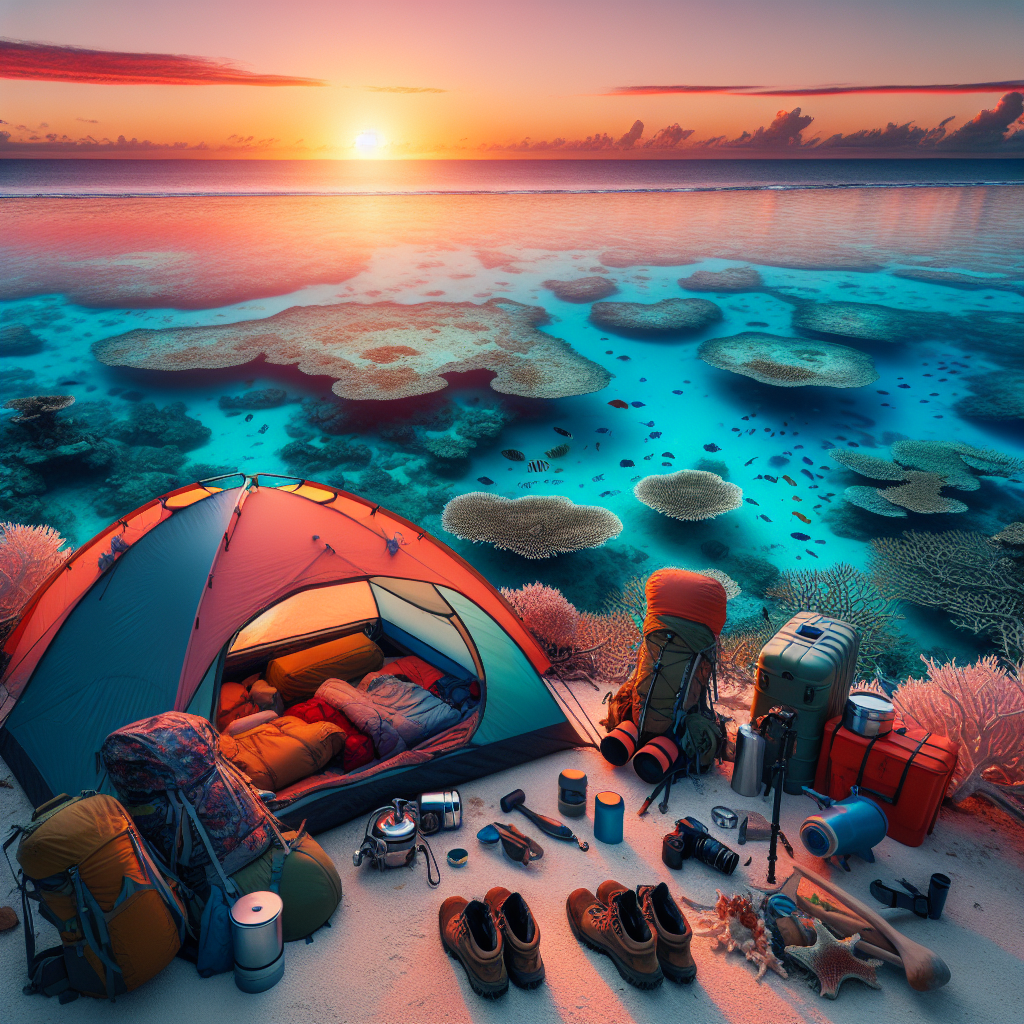

Considering Health and Safety
When planning a camping trip to the Great Barrier Reef, considering health and safety is paramount to ensure a smooth and enjoyable experience.
Check for potential hazards and risks associated with the camping location and activities you plan to engage in. This includes being aware of potential wildlife encounters, such as crocodiles or venomous snakes, and taking necessary precautions. Familiarize yourself with emergency procedures and contact information for medical facilities in the area.
Consult with a doctor if necessary, especially if you have pre-existing medical conditions or require specific medications. Discuss your travel plans with your healthcare provider to ensure you are adequately prepared and informed about any necessary vaccinations or health precautions.
Obtain appropriate travel insurance that covers camping activities and potential emergencies. Travel insurance provides peace of mind and financial protection in case of unforeseen events or emergencies. Make sure to carefully read and understand the policy coverage, including any exclusions or limitations that may apply.
Booking and Making Reservations
Booking and making reservations in advance is essential to secure your preferred accommodation, activities, and transportation arrangements.
Start by securing your accommodation. Whether you choose a campground, caravan park, or island resort, it is advisable to make early reservations, particularly during peak seasons. This ensures you have the best selection of available options and avoids disappointment.
Book activities in advance to secure your spot and avoid the risk of them being fully booked. Popular activities such as snorkeling tours, diving trips, or guided hikes can fill up quickly, especially during peak seasons. Research the various operators and their schedules, and reserve your preferred activities ahead of time.
Confirm transportation arrangements to and from the Great Barrier Reef. If you are flying, make sure to book your flights early to secure the best prices and availability. If you are hiring a campervan or car, confirm your rental details and pick-up arrangements. Double-check all the necessary reservations a few days before your trip to ensure everything is in order.
By following these steps and adequately planning your camping trip to the Great Barrier Reef, you can ensure a memorable and enjoyable experience exploring one of the world’s most remarkable natural wonders.
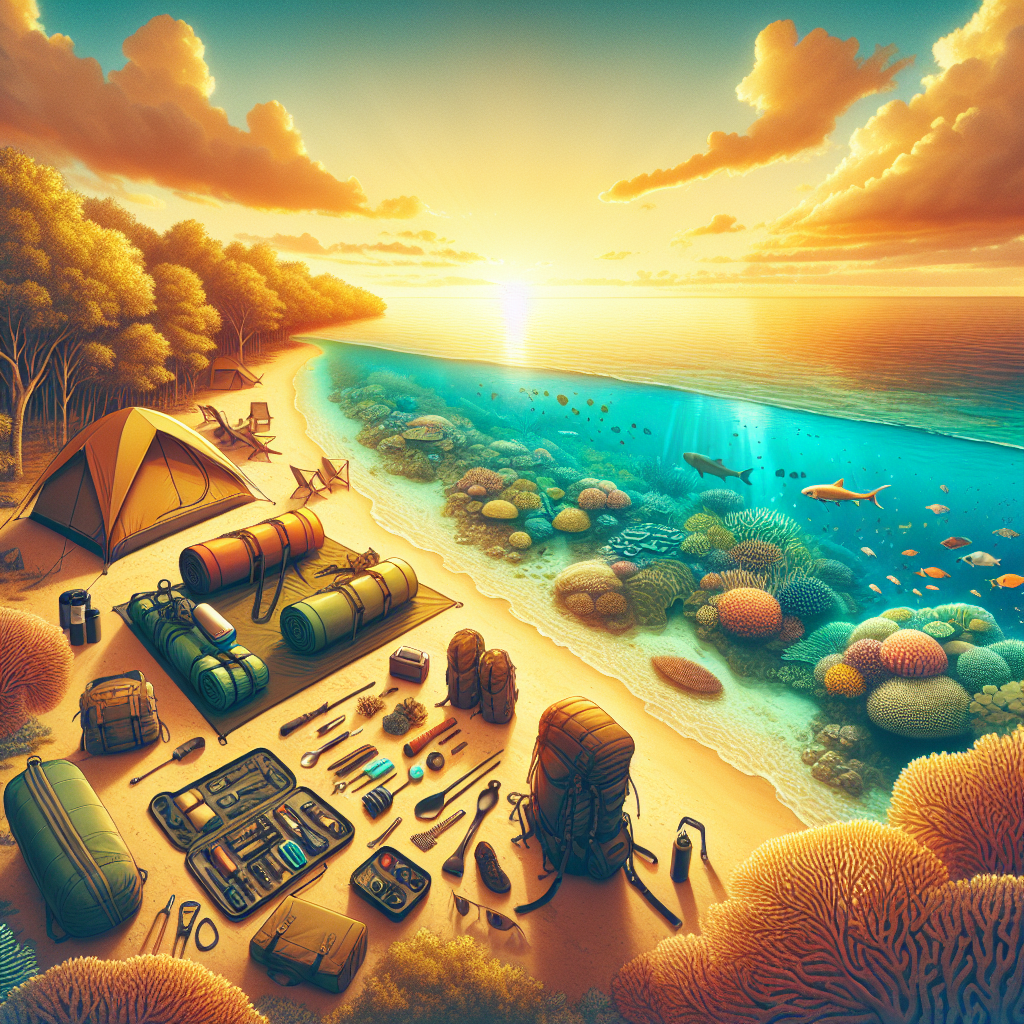

Leave a Reply